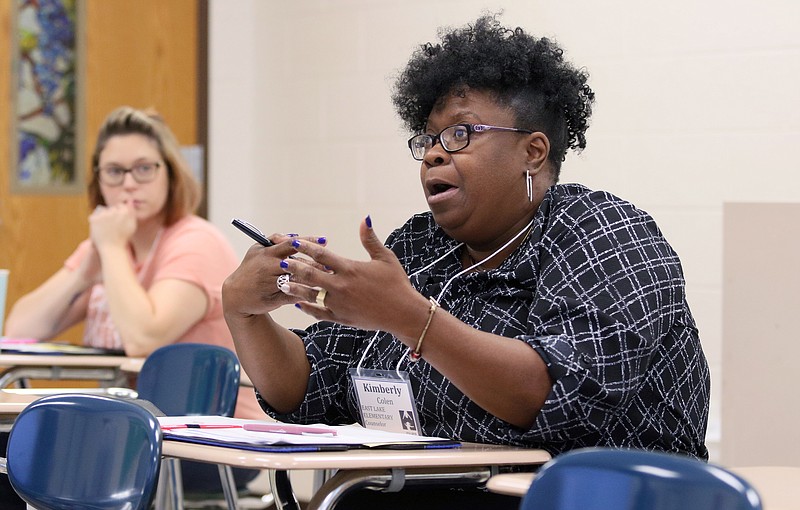Much has been made of a presentation to Hamilton County Opportunity Zone teachers late last month by motivational speaker, author and former NFL football player Robert Jackson.
At issue in the professional development session was a focus on unconscious bias and how that might affect a teacher's classroom.
While we weren't there and a copy of the presentation is not available, we're of two minds on what was purported to have been said in the presentation and others like it.
Opportunity Zone schools and teachers are attempting to turn around decades of poor student performance on standardized tests, are trying to foster school cultures to keep students from dropping out and are pushing toward giving students the workforce development they need to one day get a family wage job.
Superintendent Dr. Bryan Johnson and other school officials have said over the past two years that things would need to be different in the Opportunity Zone schools - with the teachers, with the methods of learning, with the culture - to transform the schools.
The 12 schools in the sub-district are attended largely by minority students. The school district as a whole, using figures from the 2016-2017 school year from the Tennessee Department of Education, has 85% white teachers and 8.8% black teachers. It stands to reason, then, that the largely minority schools in the sub-district will have some teachers whose color does not match those of their students.
As an aside, the school district and schools like the University of Tennessee at Chattanooga, where the local Department of Education gets many of its beginning teachers, would love to have more minority teachers. Both have made consistent efforts to hire them or recruit them to the university, and continue to do so.
For various reasons, those attempts have not succeeded as officials would have hoped. So many white teachers in the heavily minority schools are serving students - especially in the Opportunity Zone schools - whose life experiences vary greatly from theirs.
Bright teachers understand or will have learned in college some strategies about how to deal with children whose experiences are different from theirs, but we don't see a problem with professional development that gives them additional information.
But that's also where our concerns begin.
When pejorative terms like "white privilege" and "bias" begin to be thrown around, something beyond "different experiences" is being suggested. Indeed, something mean, hateful and bigoted is being implied - to people who simply want to learn how to teach better.
From there, it's an easy jump to believe minority students are unable to learn because their teachers are white and because their teachers can't appreciate their backgrounds. And then the theory becomes that the low standardized test scores in the Opportunity Schools since the merger of the Hamilton County and Chattanooga City schools in 1997 are due to the implicit bias of white teachers.
We believe that exact attitude is being fostered by some community officials and organizations that claim to support public education.
We don't believe that's the opinion of Dr. Johnson, and a statement by Justin Robertson, chief of schools for the district, indicates the focus on all students should be no different for any teacher.
"Professional development across the district this summer has focused on ensuring we have high expectations for all students," he said in a statement to the newspaper.
Expectations indeed should be high for all students, no matter their race or culture. But that doesn't mean teachers of all races couldn't learn more about those races or cultures. Some information from such professional development could be just the key to unlock the mind of a specific student or students.
The Hamilton County Schools district, like school districts everywhere, has to work with what it has. It has 44% students of color, about 85% white teachers and a year's worth of work ahead.
We want teachers, especially in Opportunity Zone schools, to be knowledgeable about their students. We want principals and administrators to flag any teachers of any race they believe are teaching with a bias toward a certain student or students.
We also expect parents and guardians to do their job in preparing their child for school, in demanding their children show respect to their teachers and administrators, and in disciplining their children they become aware are disruptive in school.
We also know that oversight will not always be present, and we are grateful for the teachers and administrators who do what they can when they sense that is not the case.
Teachers have great responsibility in ensuring student success. Professional development that assists them in their craft should be welcomed; pejorative terms that demean and accuse should not be.
